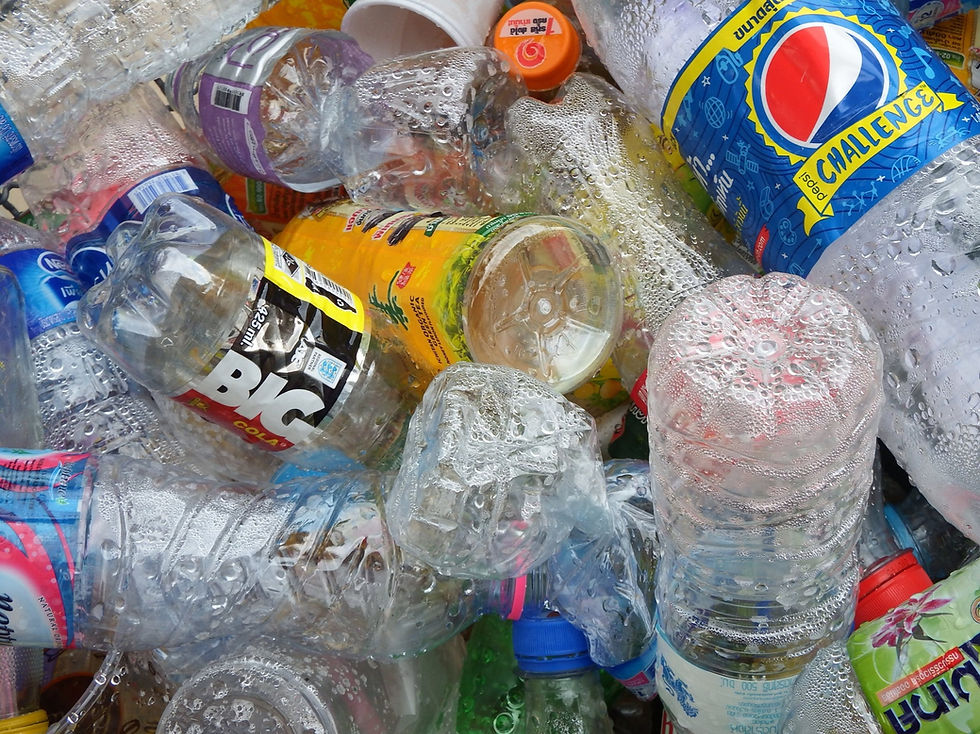Earth reaches Plastic Overshoot Day
- Susan
- Sep 5, 2025
- 3 min read
Today (5 September) marks the annual global Plastic Overshoot Day, when humanity’s plastic waste surpasses the world’s capacity to manage it.
In 2025, that tipping point comes with 225 million tonnes of plastic waste set to be generated, equivalent to the weight of 50 million adult elephants. This an increase of five million tonnes, or one million elephants, of waste since 2024.
The new report from Earth Action for Impact, a Swiss based research consultancy, highlights that almost 80% of the global population already live in areas where plastic waste has exceeded their waste management capacity.

On average, 28 kg of plastic waste per person will be generated globally this year – nearly ten percent (9.7%) increase since 2021. Almost a third (31.9%) will be mismanaged at the end of its life resulting in 72 million tonnes of plastic in nature.
This year’s Plastic Overshoot Day follows the collapse of the latest round of UN negotiations in Geneva in August to secure an international legally binding treaty on plastic pollution.
The UN Plastics Treaty would represent the world’s first comprehensive effort to regulate plastic on a global scale, with objectives ranging from curtailing virgin production to banning specific chemicals of concern.
Now in its third year, the Plastic Overshoot Day report analysed plastic waste across packaging, textiles and household products. Packaging accounted for 33% of plastic production, followed by textiles (17%) and other short lifetime plastics (5%).
With 117 days of plastic overshoot remaining, all plastic waste produced from 5 of September to year end will not be properly managed. Each country contributes proportionally to this overshoot, according to the total amount of plastic waste they mismanage.
Earth Action for Impact stresses that any improvements in waste management capacity are outpaced by rising plastic production, and that a reliance on recycling to solve the plastics crisis is fundamentally flawed.
Just 12 countries are responsible for 60% of the world’s mismanaged plastic waste, led by China, India, Russia, Brazil, Iran and Mexico. Many of these same countries resisted stronger measures at the UN Treaty negotiations, while others, such as Mexico, aligned with the High Ambition Coalition to End Plastic Pollution.
The report draws on data by Plasteax, now transitioning into the Packaging Data Hub, a multi-material data platform developed by Earth Action and systems change consultancy Systemiq.
The Hub provides granular and validated packaging data to help companies and governments make informed choices that reduce plastic use, improve product design for reuse and recycling, and keep plastics out of waste streams – all while ensuring compliance with evolving regulations.
While solutions must extend beyond waste management, the platform supports better decision making to improve product design, improve policy and investment decisions, and increase system transparency overall.
Despite the delay in securing a UN Global Plastic Treaty, Earth Action warns that plastic pollution already poses significant business risks, with corporate liabilities projected to exceed $20 billion by 2030.
Sarah Perreard, co-CEO, at EA Earth Action, said: ‘The absence of a global plastics treaty doesn't mean the absence of risk for the planet and business. Plastic Overshoot Day is a stark reminder of the plastic crisis we still face.
‘While multilateral negotiations continue to stall, plastic pollution is actively impacting the business environment through increased state regulation, litigation against companies, and mounting liabilities. The financial case for action is clear, companies that measure, disclose, and reduce plastic risks today will differentiate themselves and build resilience, while those who delay will face the costs of inaction tomorrow.’
Yoni Shiran, partner and plastics lead at Systemiq, said: ‘Plastic Overshoot Day highlights the imbalance between our production patterns and our capacity to manage waste responsibly. This is not a problem we can recycle our way out of.
‘That is why alongside Earth Action we will soon launch the Packaging Data Hub – a ‘single source of truth’ on packaging data with the aim of helping companies, governments, investors and other stakeholders to make better data based decisions.’






Comments